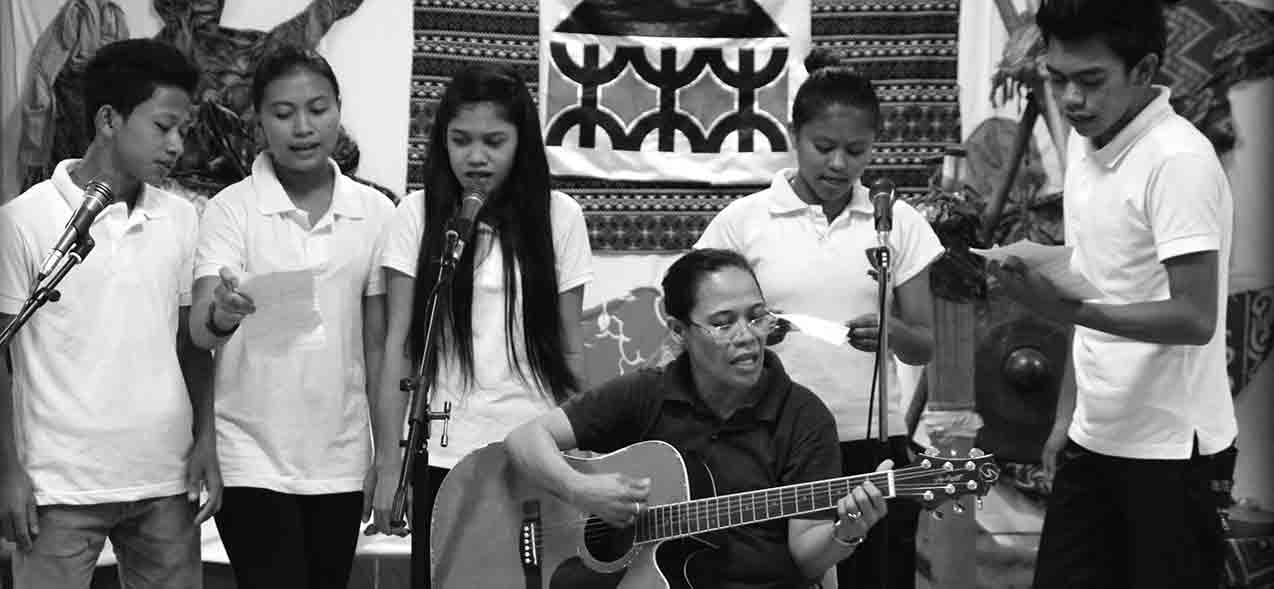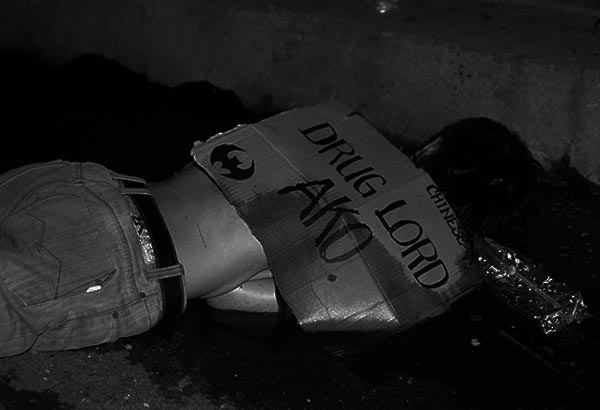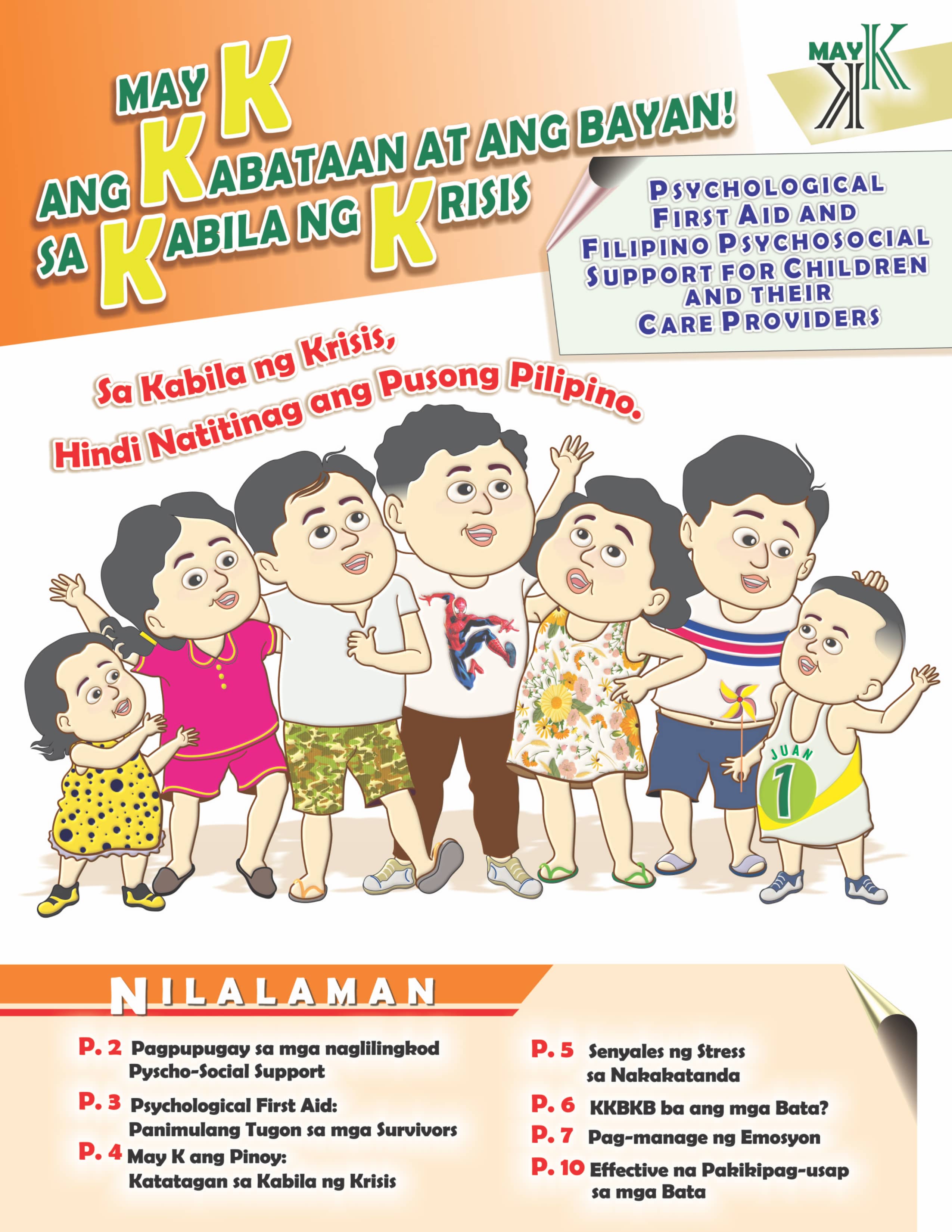The wanton disregard for law, rising criminality, terrorism and insurgency has created in the public mind an impression of a chaotic and dangerous society. Reports about murder and other crimes – many of which are related to drug use and abuse - have become staple news that tend to jar one’s senses, resulting either to a feeling of helplessness or to utter loss of trust on authorities to protect the right of citizens against lawless violence.
The apparent inability of law enforcers to keep the public safe evokes an impression that the authorities are inept, if not in connivance with those who profit from breaking the law.
With public safety and security in mind, President Duterte, as soon as he rose to power on June 30, has officially declared war on drugs, criminality, and corruption. To achieve his objectives, he vowed to get rid of scalawags and crooked officials among the ranks of local government and agents of the law. He unleashed the full force of law enforcers against those who are at the receiving end of his campaign. Surrender or die were the options he offered to consumers, peddlers, manufacturers, entrepreneurs and protectors of illegal drug. He promised that those who oppose him will go down as he vowed to produce substantial results on his crusade within the first six months of his administration.
The body count of casualties has been staggering since government commenced with its brazen anti-drug advocacy, according to reports of the Philippine Daily Inquirer (8/6/16):
- 660 drug suspects dead within five weeks; of this number 436 were killed in police operations and 224 were executed by unknown assailants or suspected vigilantes.
- This number translates to an average of 19 persons killed each day in the last five weeks; 23 were shot dead in just one day – on July 9
- One-third or 34% of all reported killings are attributed to vigilante-style executions. These are speculated to be intended to eliminate informants, personal enemies, or rivals in the drug trade.
- In July alone, 400 killings have been attributed to police officers while 196 deaths were reported to have been perpetrated by unknown assailants.
- In the first four days of August, 64 drug suspects were killed – 34 involving the police, and 30 involving unidentified perpetrators.
The ABS-CBN News, for its part, has compiled the following figures.
| Number of drug-related fatalities by type May 10 – August 4, 2016 |
|
| Number | |
| Police operation | 525 |
| Unidentified assailants | 249 |
| Bodies found away from crime scene | 78 |
| Total number of killings | 852 |
| Source: "MAP, CHARTS: The Death Toll of the War on Drugs | ABS-CBN News". News.abs-cbn.com. 2016-07-13. Retrieved 2016-08-05. | |
The President’s war has also brought about “collateral damage” consisting of poor people who happen to be in the wrong place at the wrong time. The alarming number of casualties has raised questions on the legitimacy of some of the police actions and the propriety of the take-no-prisoner approach of the Commander-in-Chief in his anti-drug crusade.
Reports of shooting of suspects under police custody – some of whom were in handcuffs already or were confined in tightly guarded police precincts- have given rise to impressions of acts of summary execution. According to authorities, the fatalities are either ‘nanlaban” – have fought back -, resisted arrest, or grabbed the gun of the apprehending officers prompting them to use deadly force against the suspects.
Is it possible that the law enforcers may have employed excessive violence in such cases? Have they stepped out of the line and disregarded due process? Are they really bent on fulfilling their mandate to serve and protect the citizens, or are they undertaking a subtle detoxification process to erase any trace of involvement of law enforcers in the drug protection racket?
Insisting that accusers do not have any witness nor substantial evidence against claims of unlawful killings, police authorities maintain that they have adhered to the principle of regularity in carrying out their duty.
President Duterte himself has acknowledged that there could have been abuses by authorities in the drug war, but he seems to be not bothered by it at all. He said that illegal killings have to be investigated but is short of issuing a strong statement to stop the rising vigilante-style killings which were come to be known as ‘cardboard justice”- referring to the sign left behind by the killers that their victim are dregs in society that deserved to die.
In his first State of the Nation Address, President Duterte reiterated his policy of bringing death to those who defy his anti-drug campaign as he ordered the police to “triple” their efforts against crime. He also earlier said that he would pardon police officers who will be charged for abiding by his deadly instructions.. He warned the targets of police operations not to seek help from the Commission on Human Rights nor turn to the Catholic Bishops for protection as invoking human rights will not dissuade him from achieving his goals. Human rights cannot be used as a shield or an excuse to destroy the country, he declared.
President Duterte’s statements and policies regarding human rights appear to be inconsistent. But as a former prosecutor and now the head of the state, he must know that it his duty to validate in action his public declaration of “uncompromising adherence to due process and rule of law” and to the international obligations on human rights that the government has signed as a member of the United Nations.
No one wants President Duterte to fail in his war on drugs and crime. Balay agrees well with the government’s aspiration to promote public safety, security and the general welfare of the people. It also applauds the President’s commitment to run a government that is "sensitive to the State's obligations to promote, and protect, fulfill the human rights of [the] citizens, especially the poor, the marginalized and the vulnerable."
Balay is saddened by the deaths of police officers who have died in their line of duty as it extends its sympathy to those who have been widowed or orphaned by unlawful killings by authorities or vigilantes.
The agents of the law who have sworn to and stick with their credo to serve and protect the public deserve commendation as we look forward – just like with the rest of the population – to the day when malevolent, abusive, and crooked law enforcers and their partners in power will be made accountable for their misdeeds.
Experiences from countries such as Colombia has failed to show that using lethal violence to contain the drug menace had been completely successful. Instead, their war on drugs have resulted in a high cost of human lives.
A study made by Prof. Daniel Mejia, a scholar at the Research Center on Drugs and Security at Universidad de los Andes in Bogotá, Colombia, showed that 57,000 Colombians are estimated to have been killed between 1994 and 2008 as a consequence of growing illegal drug markets and resulting confrontations between drug trafficking organizations (DTO) and the Colombian government.[1] This translates into approximately 3,800 additional homicides (or about 25 percent of total homicides) per year from drug-related violence alone. Yet despite such enormous investments and costs, Colombia continues to be a key producer and trafficker of illicit drugs, and in particular of cocaine.
The International Narcotics Control Board and the UN Office on Drugs and Crime (UNDOC), following the UN Special Session on the world drug problem, said that extra-judicial killings “contravene the provisions of international drug control conventions, do not serve the cause of justice, and will not help to ensure that all people can live in … security and prosperity.”
With this in mind, it is imperative that the citizens remind the authorities to uphold the rule of law and due process and to call on the highest authority in the land to make an unequivocal statement denouncing the extra judicial killings and to make accountable those found to be using excessive and lethal violence to the disregard of due process.
Maintaining silence over the extra legal killings is tantamount to condoning another form of criminal act that runs against the basic agenda of the government to keep the public safe and secure from deadly violence and abuse of authority.
How many lost lives would it take for us to say enough of the bloodshed. Exacting retribution against criminals may have popular support among the general public for now, but a credible judicial system and a law enforcement regime that is grounded on justice, due process, transparency and respect for the human rights of all must prevail over vengeance and a criminality-cleansing strategy that stokes a culture of death.
























